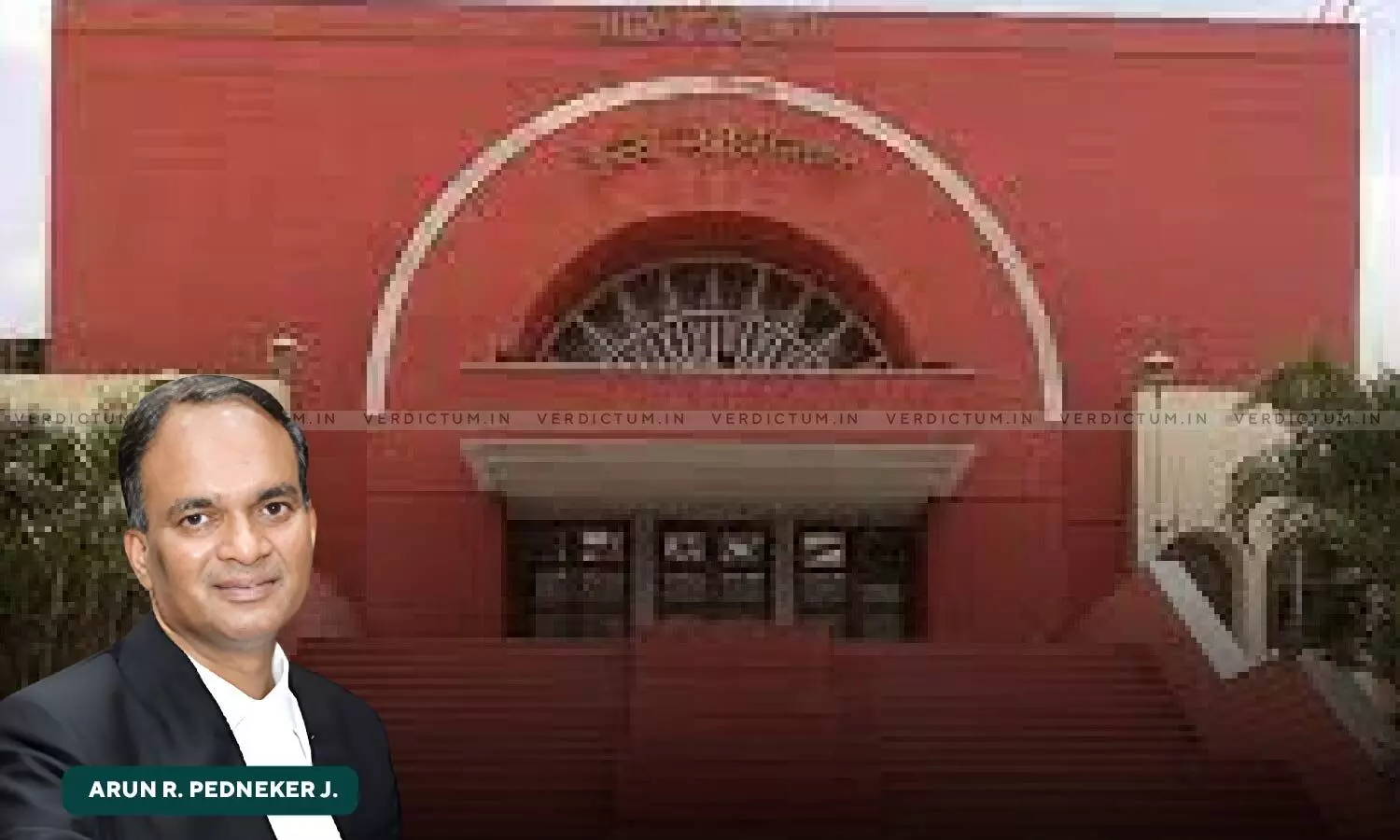
Justice Arun R. Pedneker, Bombay High Court, Aurangabad Bench
Merely Having Names Of Dead Persons On Electoral Roll Doesn’t Mean That Votes Are Cast In Their Names: Bombay High Court
 |
|The Bombay High Court was hearing an Application in Election Petition filed by Shobha Dinesh Bacchav.
The Bombay High Court held that merely having names of dead persons on the electoral roll does not mean that votes are cast in their names.
The Aurangabad Bench held thus in an Application in Election Petition filed by Shobha Dinesh Bacchav.
A Single Bench of Justice Arun R. Pedneker observed, “… by merely having names of dead persons on the electoral roll this court will not presume that votes are cast in their names. The polling agents in the booth are aware of the votes cast by persons and an affidavit of polling agents present in the polling station stating that votes are cast against the dead persons would at least indicate that voting has taken place against the name of dead persons.”
The Bench took note of the fact that there is no prima-facie material to indicate that votes are cast in the name of dead persons.
Advocates Mukul Kulkarni and Umesh G. Mitkari represented the Election Petitioner while Advocates V.D. Salunke, A.V. Deshmukh, and Standing Counsel Alok Sharma represented the Respondents.
Factual Background
General Elections to the 18th Lok Sabha were announced on March 16, 2024 and Election/Voting to the Dhule Parliamentary Constituency was held on May 20, 2024 and the Respondent was declared elected on June 4, 2024. The Election Petitioner was one of the candidates in the election who had secured the second highest votes. The elected candidates secured 5,83,866 votes while the Election Petitioner secured 5,80,035 votes. The difference in votes between the two candidates was 3831 votes. The Dhule Parliamentary Constituency consists of 6 assembly constituencies, which are Dhule (Rural), Dhule (City), Sindkheda, Malegaon (Central), Malegaon (Outer), and Baglan. In the Malegaon Central Constituency out of 02,05,588 votes polled, Respondent had secured 1,98,869 votes.
Whereas, the Petitioner received only 4542 votes and none of the other candidates could pass 100 vote mark. The Election Petition before the Court primarily focused on this Assembly Constituency (Malegaon Central Constituency. It was filed primarily contending that names of large number of dead persons are included in the electoral roll of this assembly constituency and votes are cast in the name of the dead persons and the same is received by the Respondent. It was also contended that there are multiple votes cast in the name of same persons in different booths in the said Assembly Constituency as their names are reflected in the Electoral Roll at multiple places of the same assembly constituency.
Reasoning
The High Court after hearing the contentions of the counsel, said, “The data is asked from the Election Petitioner from the Election Commission i.e. Register maintained under Form 17-A and 17-C of the Conduct of Election Rules, 1961 with CCTV footage so as to verify, whether votes are cast in the name of dead persons and multiple votes are cast in the name of same persons at different booths.”
The Court further noted that there is no affidavit by polling agents that they have noticed votes being cast in the name of dead persons or that the polling agent had raised objection to the casting of the votes in the name of dead persons.
“It is also not stated that the polling agents have noticed casting of votes in the name of dead persons, however, have not objected to the casting of the votes in the name of dead persons as they were unaware of the demise of the voter at the relevant time. The polling agents seats with voters list in the polling station and are aware of the voters casting votes. There is no material to show that voting has taken place in the name of dead person”, it added.
The Court remarked that there is an element of speculation and inquiry by the Court at the instance of the Election Petitioner.
“The Election Petitioner has placed on record the names of dead persons, whose names continues to be on the electoral roll, so also, has placed names of voters at multiple places. However, there is no evidence that voting has taken place in the name of dead persons or that voting has taken place at multiple places by the same voter. This data is called for from the Election Commission by the Election Petitioner and only after the data that may be made available by the Election Commission further case of the Petitioner will either be substantiated or refuted”, it also observed.
Conclusion
The Court said that if the allegations contained in Election Petition do not set out grounds as contemplated in Section 100 and do not conform to the requirement of Section 81 and 83 of the Act, the Election Petition is liable to be rejected Under Order VII, Rule 11 of Code of Civil Procedure, 1908 (CPC).
“An omission of a single material fact leading to an incomplete cause of action or omission to contain a concise statement of material facts on which the Election Petitioner relies for establishing a cause of action, would entail rejection of Election Petition Under Order VII Rule 11 read with Section 83 and 87 of the Representation of the People Act”, it concluded.
Accordingly, the High Court allowed the Application in Election Petition.
Cause Title- Smt. Shobha Dinesh Bacchav v. Dr. Shri Subhash Ramrao Bhamre & Ors. (Neutral Citation: 2025:BHC-AUG:14929)